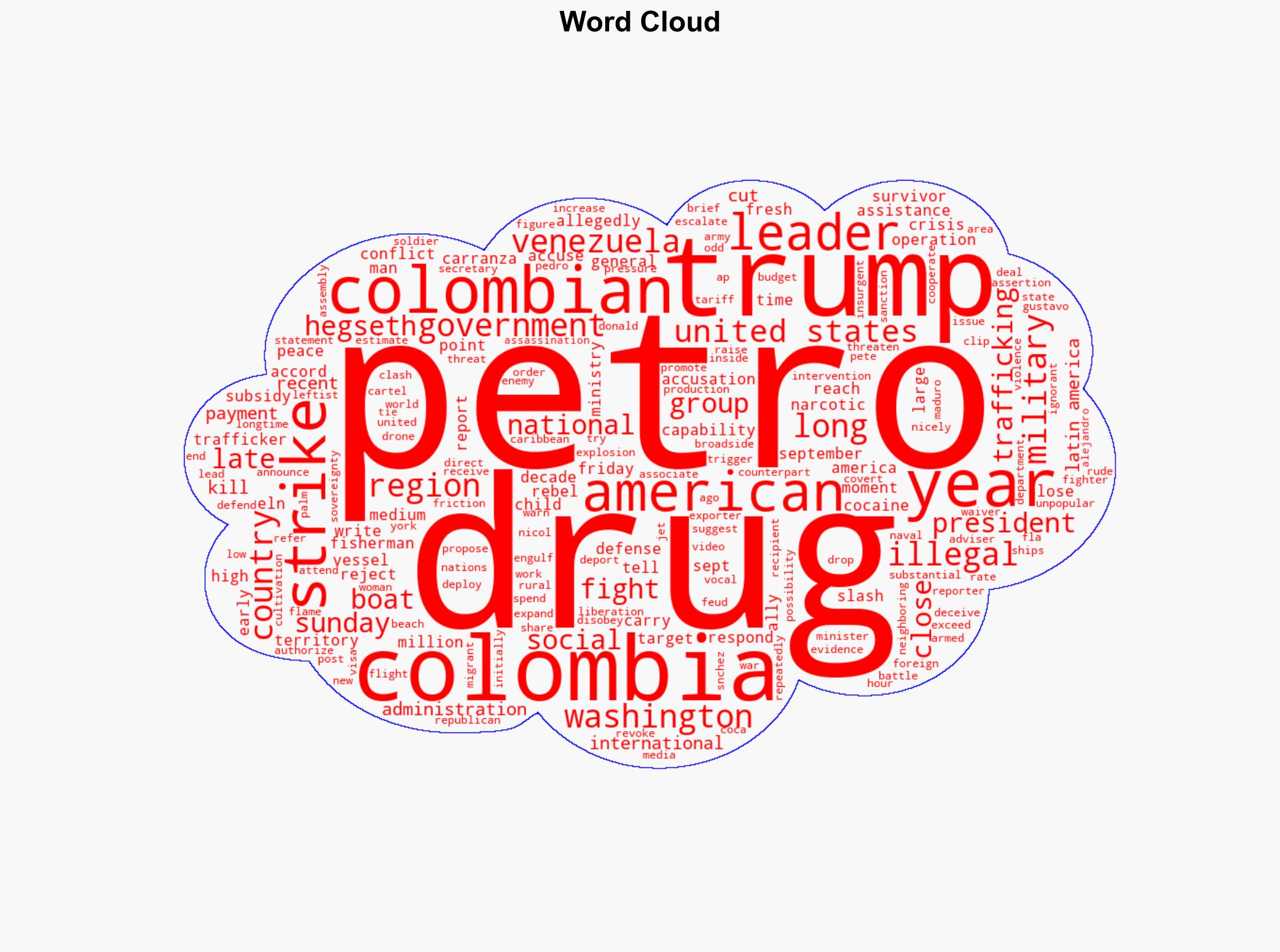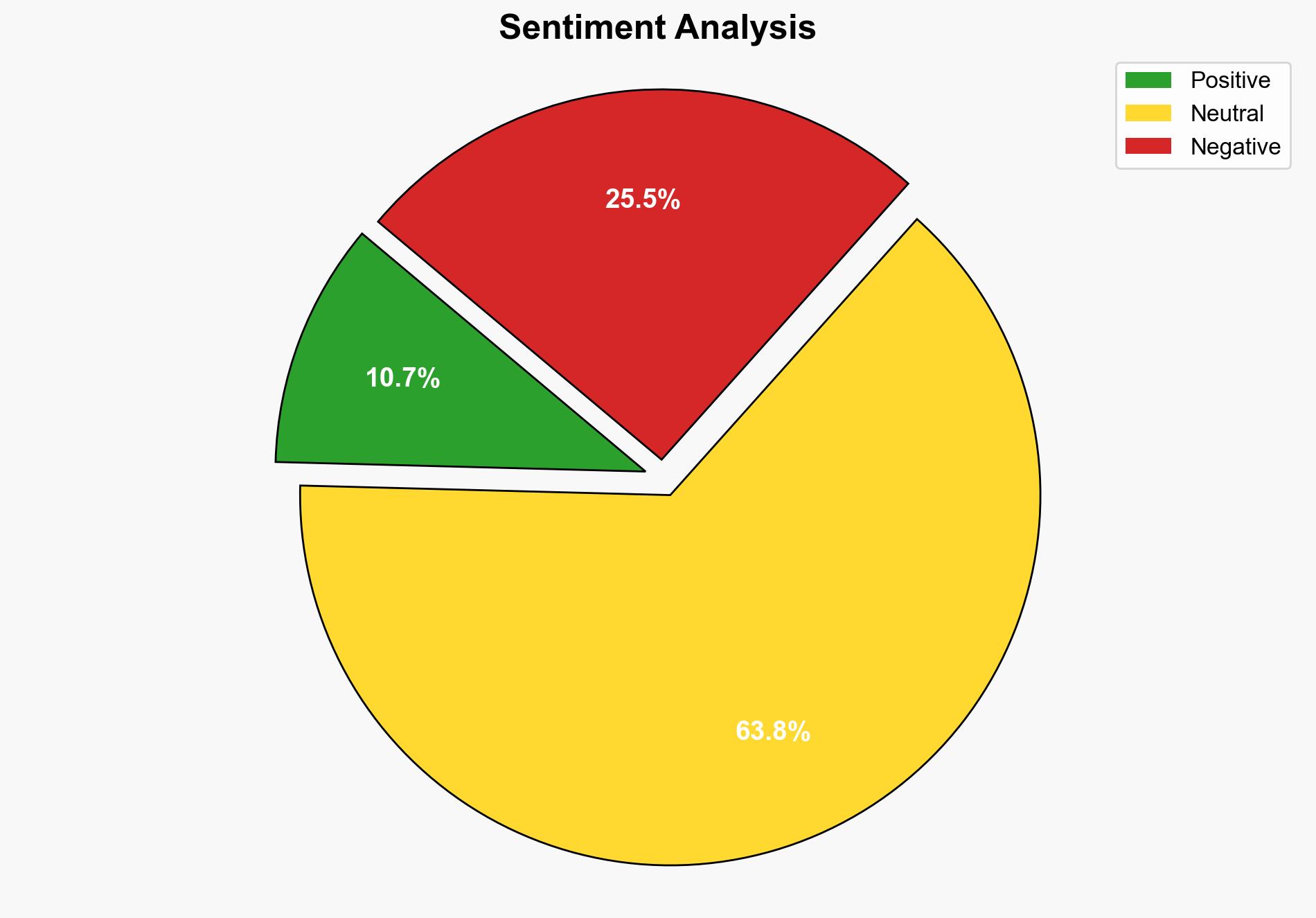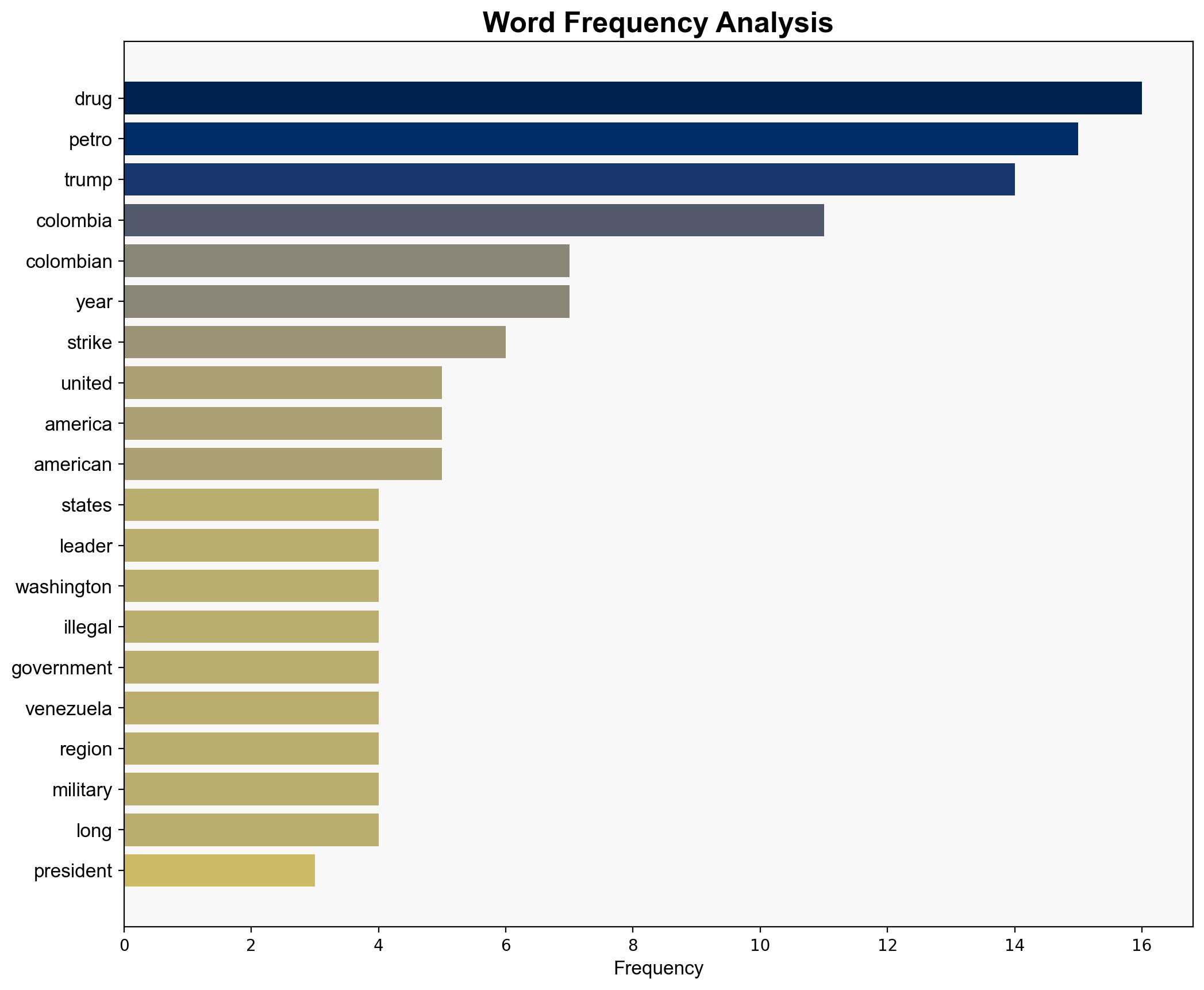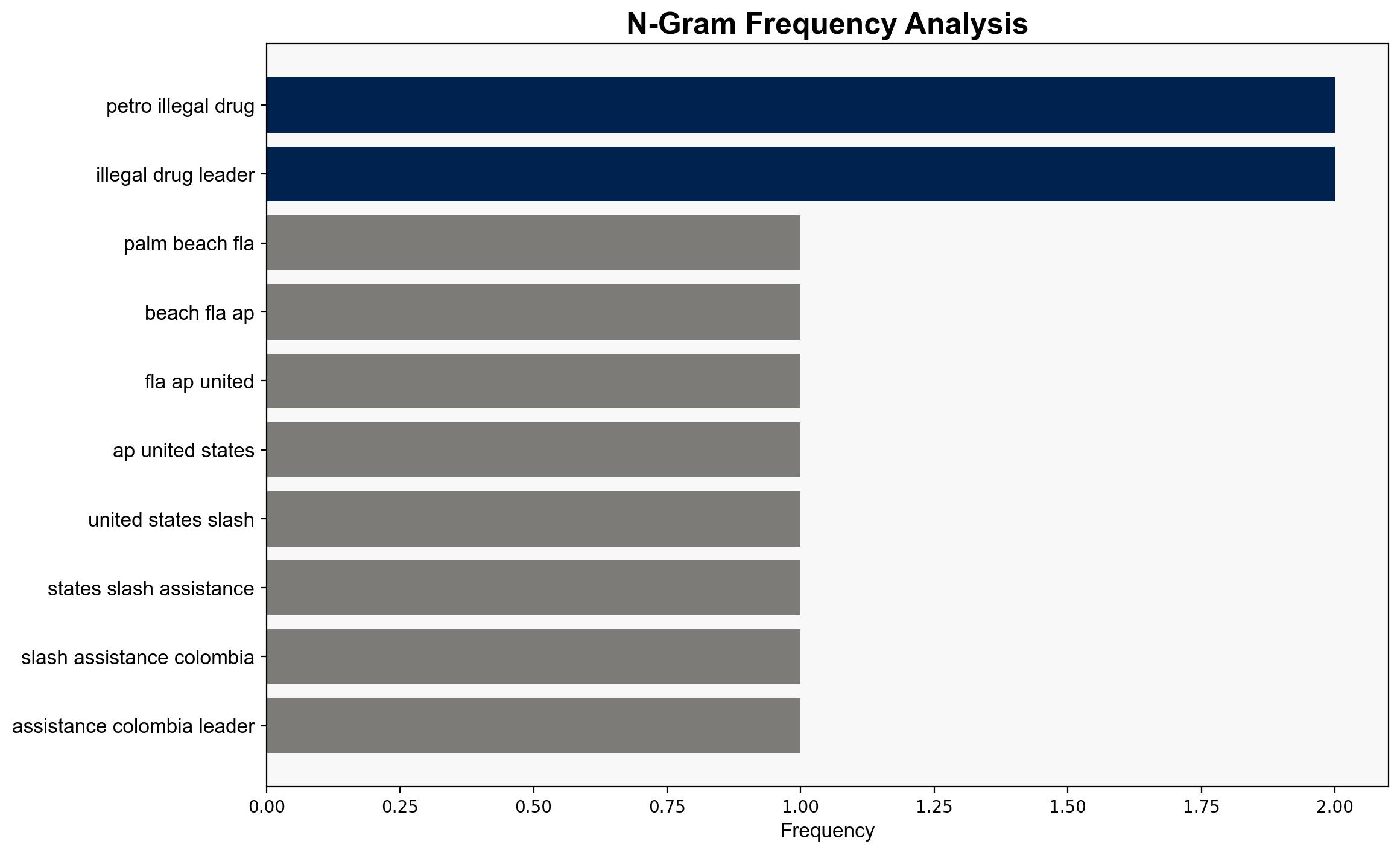Trump To End US Aid To Colombia After Calling Leader An ‘Illegal Drug Dealer’ – HuffPost
Published on: 2025-10-19
Intelligence Report: Trump To End US Aid To Colombia After Calling Leader An ‘Illegal Drug Dealer’ – HuffPost
1. BLUF (Bottom Line Up Front)
The most supported hypothesis is that the U.S. decision to end aid to Colombia is primarily a strategic maneuver to exert pressure on Colombia’s leadership and influence regional dynamics, particularly concerning drug trafficking and geopolitical alignments. Confidence level is moderate due to the complexity of the geopolitical landscape and potential for misinformation. Recommended action is to engage in diplomatic dialogue to clarify intentions and mitigate potential regional instability.
2. Competing Hypotheses
Hypothesis 1: The U.S. decision to end aid is a strategic move to pressure Colombia into stronger anti-drug measures and align more closely with U.S. interests in the region. This is supported by the historical context of U.S.-Colombian relations and recent military actions.
Hypothesis 2: The decision is primarily driven by domestic political motivations within the U.S., using Colombia as a scapegoat to bolster political standing and distract from internal issues. This is suggested by the timing of the announcement and the inflammatory rhetoric used.
Using ACH 2.0, Hypothesis 1 is better supported due to the alignment with historical U.S. foreign policy patterns and the strategic importance of Colombia in regional drug trafficking dynamics.
3. Key Assumptions and Red Flags
Assumptions include the belief that Colombia’s government is capable of significantly altering drug trafficking dynamics and that U.S. aid is a primary lever of influence. Red flags include potential misinformation from social media posts and the lack of direct evidence linking Colombia’s leadership to drug trafficking activities. Blind spots may include underestimating the internal political dynamics within Colombia.
4. Implications and Strategic Risks
Potential implications include increased regional instability, strained U.S.-Colombian relations, and a potential vacuum that could be exploited by other geopolitical actors. Economic impacts could arise from disrupted trade relations, while geopolitical risks include heightened tensions with neighboring Venezuela. There is also a risk of escalating military confrontations if diplomatic channels are not prioritized.
5. Recommendations and Outlook
- Engage in diplomatic talks with Colombia to clarify intentions and reduce tensions.
- Monitor regional developments closely to anticipate shifts in alliances or escalations.
- Scenario-based projections:
- Best Case: Diplomatic resolution leads to strengthened U.S.-Colombian cooperation on drug trafficking.
- Worst Case: Military escalation and regional destabilization.
- Most Likely: Prolonged diplomatic tensions with intermittent cooperation on specific issues.
6. Key Individuals and Entities
Donald Trump, Gustavo Petro, Pete Hegseth, Pedro Sánchez, Alejandro Carranza.
7. Thematic Tags
national security threats, geopolitical strategy, drug trafficking, U.S.-Colombia relations





